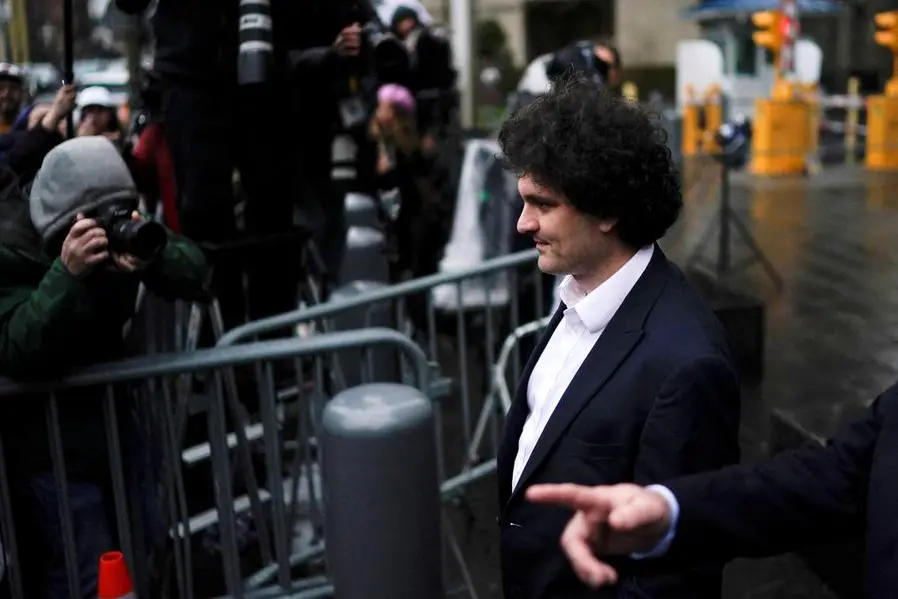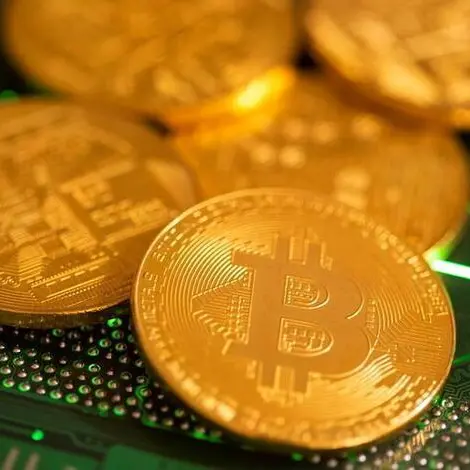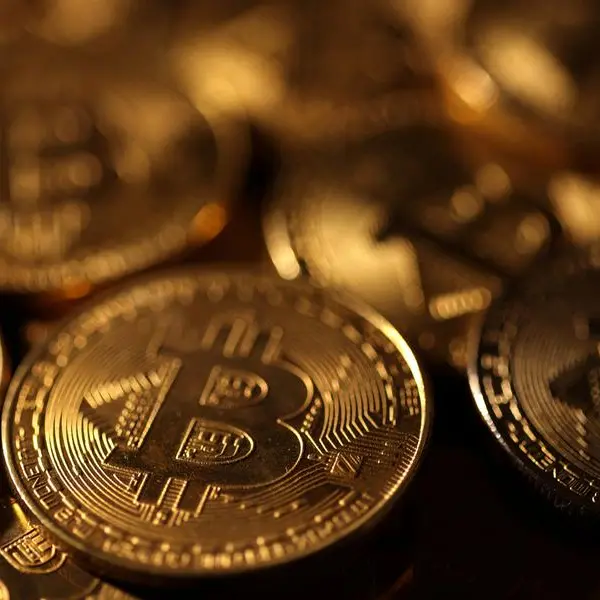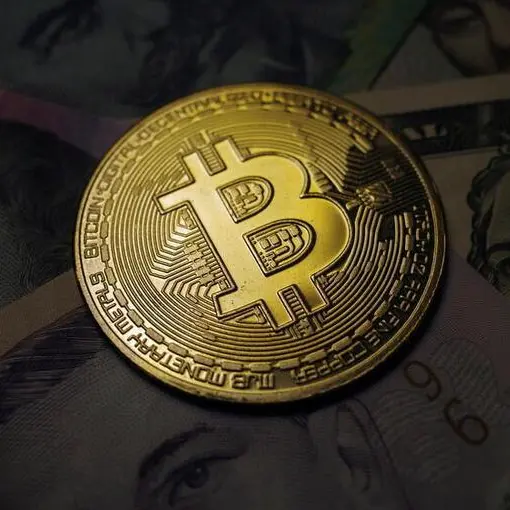PHOTO
(The opinions expressed here are those of the author, a columnist for Reuters.)
Indicted FTX founder Sam Bankman-Fried has accused the bankrupt crypto exchange’s lawyers from Sullivan & Cromwell of acting as prosecutors in the government’s case against him, claiming in a filing on Monday that FTX outside counsel conducted witness interviews, handed over incriminating documents and even developed some of the government's legal theories.
Bankman-Fried’s defense lawyers at Cohen & Gresser argued in Monday’s brief that Manhattan federal prosecutors “effectively deputized” FTX’s outside counsel to build the prosecution’s case without triggering the government’s obligation to turn over evidence that could exonerate the onetime billionaire crypto founder. (Bankman-Fried did not specifically name Sullivan & Cromwell in the filing but the firm is lead counsel to FTX in its Chapter 11 bankruptcy.)
The new filing was part of a suite of motions asking U.S. District Judge Lewis Kaplan of Manhattan to dismiss most of the counts in the government’s sweeping indictment of Bankman-Fried for (among other things) allegedly defrauding customers, making illegal campaign contributions and bribing Chinese officials.
In Monday’s motions, the FTX founder, who has pleaded not guilty to all of the government’s charges, broadly argued that prosecutors rushed into an ill-considered criminal case because they needed a “villain” to blame for last year’s “crypto winter.”
Bankman-Fried’s lawyers did not cite Sullivan & Cromwell’s alleged prosecutorial assistance as a reason to toss the government’s case. Instead, they asked the judge to order prosecutors to allow Bankman-Fried to see the troves of information that FTX and its lawyers have turned over to the government.
As a private company, FTX does not have the government’s constitutional obligation to give defense lawyers documents and other material that could help Bankman-Fried clear his name. Moreover, according to the new filing, FTX has refused to waive attorney-client privilege over materials that might help Bankman-Fried, even though the company has selectively waived privilege in responding to government requests.
But if Bankman-Fried can show that FTX is acting as an arm of the government, he may be entitled to see what the company has shared with prosecutors, including any material that would help him cast doubt on government witnesses or otherwise undermine the case against him.
Sullivan & Cromwell co-chair Robert Giuffra and restructuring group co-head Andy Dietderich did not respond to my query on the new Bankman-Fried filing.
The firm, which began representing FTX shortly before the exchange sought bankruptcy last fall, faced criticism from the U.S. Trustee and others for failing to disclose details about all of its work for FTX. But Bankman-Fried's successor as FTX's CEO, turnaround specialist John Ray, said the company needed Sullivan & Cromwell’s sophisticated counsel to pursue assets for FTX customers and to deal with criminal and Congressional investigations. A Delaware bankruptcy judge approved the firm’s engagement in January.
A Bankman-Fried spokesperson declined to comment on the new Sullivan & Cromwell brief, as did a spokesperson for the Manhattan U.S. Attorney’s Office.
The Justice Department has long encouraged companies to cooperate with prosecutors when a corporate executive is accused of criminal conduct. Corporations that step forward to reveal wrongdoing and offer up evidence from their own internal investigations are often rewarded with deferred prosecution or non-prosecution agreements.
But Bankman-Fried contends that Ray and FTX’s lawyers overstepped their bounds and became an “arm of the prosecution.” The filing alleged that bankruptcy records show FTX outside lawyers have provided “tens of millions of dollars of free work to the prosecution,” including at least 150 hours of consultation with prosecutors.
In one notable instance, according to the filing, the government asked FTX lawyers to work up a presentation on whether FTX and its sister investment firm Alameda Research were operating an unlicensed money transmitting business. FTX outside counsel, according to Bankman-Fried, agreed to waive attorney-client privilege over thousands of documents related to prosecutors’ request and to present their analysis to the government. In a matter of weeks, Bankman-Fried’s brief alleges, the government had everything it needed to add money-transmitting allegations to a superseding indictment.
And that is just one instance, according to Bankman-Fried, of FTX and its lawyers waiving privilege at the government’s request. FTX has even given prosecutors “read-outs” of its lawyers’ notes of witness interviews, the filing claims. But when Bankman-Fried has asked FTX and related entities to waive privilege, the filing said, “they have steadfastly refused.”
None of this is surprising, Bankman-Fried acknowledged: FTX, he said, has no incentive to help the former CEO, who is a convenient scapegoat. But that is all the more reason, the defense brief argued, to assure that prosecutors do not capitalize on FTX's involvement to evade their obligation to protect Bankman-Fried’s rights as a defendant.
The Justice Department, as I’ve reported, is under increasing scrutiny from white-collar defendants who claim to have been scapegoated by their companies after internal investigations.
At a hearing last month, for instance, two former top executives from Cognizant Technology Solutions Corp questioned federal prosecutors and Cognizant outside counsel about the extent of Cognizant’s influence on the Justice Department’s Foreign Corrupt Practices Act investigation of the company. The executives, who claim violations of their 5th Amendment rights, are hoping, at a minimum, to suppress certain evidence that emerged in Cognizant’s internal investigation.
In a 2019 case cited in Bankman-Fried’s brief, U.S. District Judge Colleen McMahon of Manhattan harshly criticized prosecutors for outsourcing a criminal investigation of alleged rate-rigging by Deutsche Bank AG traders to Deutsche Bank’s lawyers from Paul, Weiss, Rifkind, Wharton & Garrison. McMahon ultimately concluded, though, that an indicted trader’s constitutional rights were not violated because the government did not rely on his statement to Paul Weiss when it presented its case to a grand jury.
It's not easy, in other words, for defendants to make much headway by claiming prosecutors have deputized corporate counsel. We will see if Bankman-Fried, who is not claiming a constitutional violation, at least gets some discovery from his effort.
(Reporting By Alison Frankel; editing by Leigh Jones)




















